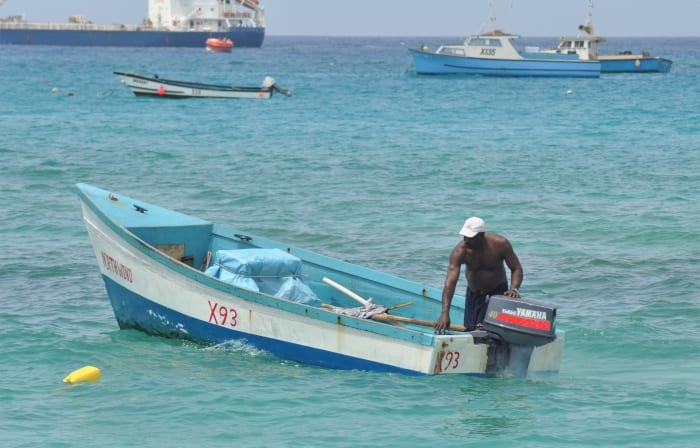
Barbados has made a call for differential treatment with regard to fishing subsidies, as it reaffirms its commitment to playing its part in sustainable fishing practices.
Minister of Foreign Affairs and Foreign Trade, Senator Dr. Jerome Walcott, made the appeal as he participated in the Ministerial Level, World Trade Organization (WTO) Trade Negotiations Committee (TNC) on Fishing Subsidies.
Dr. Walcott pointed out that in order for the WTO to reach an agreement on fisheries subsidies in accordance with the mandates set by Heads of State and Government in target 14.6 of the Sustainable Development Goals, there must be special and differential treatment given not only to Barbados but also other CARICOM states and Organisation of African and Pacific States (OACP), as their contribution to fishing is “miniscule”.
“Barbados does not engage in large-scale industrial fishing and cannot be considered by any stretch of the imagination to be a subsidiser of any significance. In fact, my country’s share of global marine capture fisheries production, in terms of metric tons, has consistently been infinitesimal.
“Barbados maintains its call for special and differential treatment, which is mandated, through an exemption for members whose share of global marine capture fisheries production, is below a defined de minimis level within the overcapacity and overfishing section, of the agreement,” Senator Walcott stated.
In addition, the Foreign Minister declared that it was “unacceptable to allow the status quo to be institutionalised in the agreement, under the guise of sustainability”.
Dr. Walcott noted that Barbados has fully embraced the need to shift to more sustainable pathways in order to conserve and protect Barbados’ land and ocean spaces.
He cited the Blue Economy as one of the core tenets Barbados will utilise in driving economic diversification, and its efforts at attaining its sustainable development objectives.

“It is therefore critical for us at the international level, if we are able to come up with the right combination of elements. The conclusion of a WTO agreement on fisheries subsidies could serve as one of our collective contributions to fulfilling the goal of eliminating the type of subsidies that contribute to the wholesale overfishing that has unfortunately characterised the state of our oceans today,” Minister Walcott emphasised.
An appeal was also made for the WTO to review a collective proposal from CARICOM and the OACP on an exemption for artisanal, and small-scale fishing within a coastal member’s Exclusive Economic Zone for unreported and unregulated fishing and overfishing; and that technical assistance and capacity building be delinked from the outdated per capita income criteria, because Barbados has been classified as having a relatively high income per capita.
That classification, Senator Walcott noted, prevented Barbados from accessing technical assistance, capacity building and other forms of concessional arrangements at the national level, “thereby placing us in a disproportionate position”.
“Let me assure you that Barbados will employ the necessary political will to ensure that we conclude a balanced agreement, which will ensure the conservation and protection of our vital fisheries resources, and we count on other WTO members to also play their role,” Minister Walcott concluded.
WTO negotiations on fisheries subsidies were launched in 2001 at the Doha Ministerial Conference, with a mandate to “clarify and improve” existing WTO disciplines on fisheries subsidies.
That mandate was elaborated in 2005 at the Hong Kong Ministerial Conference, including a call for prohibiting certain forms of fisheries subsidies that contribute to overcapacity and overfishing.
In 2017, ministers decided on a work programme to conclude the negotiations by aiming to adopt, at the next Ministerial Conference, an agreement on fisheries subsidies which delivers on Sustainable Development Goal 14.6.
